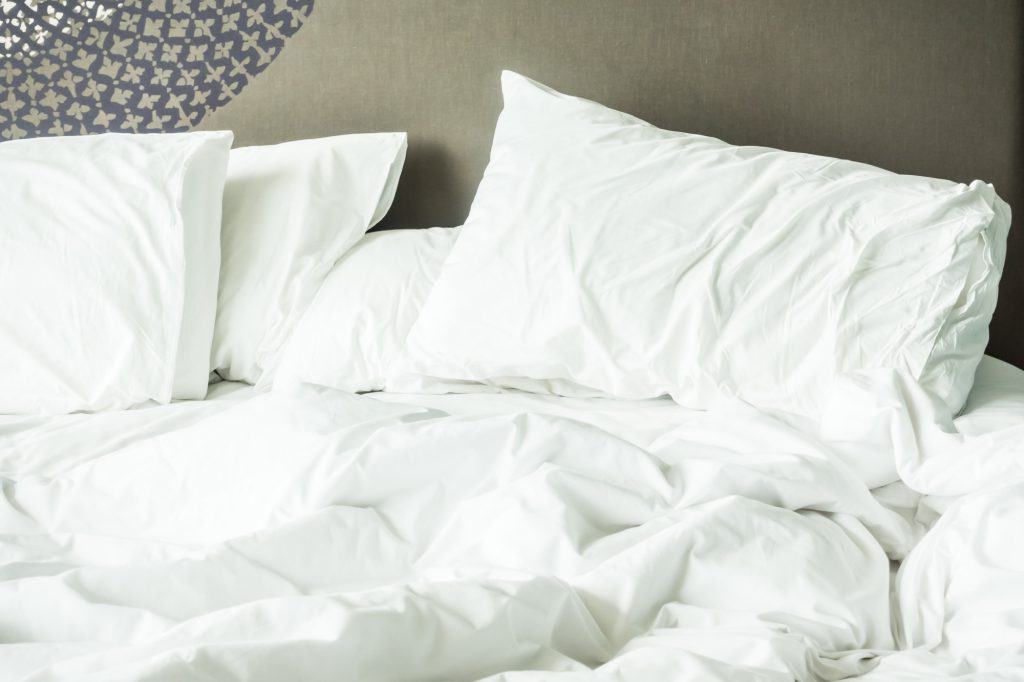Bedding / Sleep Advice
A Comprehensive Guide to Washing Bed Sheets Properly
Maintaining the cleanliness and freshness of your bedding is crucial for both a comfortable night’s rest and overall hygiene. While washing your sheets might seem like a simple task, doing it properly can significantly prolong their lifespan, enhance their comfort, and rid them of allergens. This comprehensive guide will lead you through the process of choosing appropriate cleaning agents, tackling tough stains, and following the best techniques for washing, drying, and preserving your sheets, guaranteeing they stay crisp, clean, and cozy.
Introduction to Proper Bed Sheet Care
Washing your bed sheets regularly is important not only for hygiene reasons but also to extend the life of your bedding. Ideally, sheets should be cleaned every week, at the most every two weeks, to remove the buildup of dirt, dander, and oil that come off you while you sleep. Washing your sheets properly can prevent the fabric from thinning and developing holes prematurely and keep the colors vibrant.
Proper bed sheet care also involves knowing the material and fabric your sheets are made of. Different materials, such as cotton, linen, and synthetic blends, require specific care to maintain and keep them looking their best. Knowing what material your sheets are made from is the first step in caring for them correctly, as this will apply to the temperature settings you choose to determine the right cycle in your washing machine.
Choosing the Right Detergent and Fabric Softener

Ever climb into bed only to find your sheets feel rough or stiff? The right laundry routine can make a big difference! Keeping your sheets clean and soft isn’t just about comfort; it can also help them last longer. Here’s how to choose the right detergent and fabric softener to ensure your bed continues to feel like a haven.
Look for a gentle detergent that tackles stains without being too hard on the fabric. If you have sensitive skin, hypoallergenic detergents are a lifesaver and are free from dyes and fragrances that can cause irritation.
While fabric softener can make sheets feel and smell amazing, it’s not always necessary. Using too much fabric softener can reduce the fabric’s ability to absorb moisture and breathe. If you decide to use fabric softener, choose one suitable for your sheet’s fabric type and use sparingly.
Effective Stain Removal Techniques for Sheets

Getting a stain or two (or three!) on your sheets is almost inevitable, but they don’t have to be permanent. Treating stains quickly is what will stand between you and getting the stain out properly. For protein-based stains like sweat and blood, cold water is best to prevent the stain from setting. In addition to this, it’s best to use an enzyme-based stain remover for these types of stains before loading them into the washing machine.
Pre-treating other stubborn stains, such as makeup or oil, with a dab of liquid detergent is often effective in stopping these stains from setting in. Allow the detergent to sit on the stain for at least 15 minutes before washing. Pre-treating stains helps break down any oils, making them easier to wash away.
Guide to Machine Washing Sheets
If you decide to wash your sheets in the washing machine, start by separating them by color and fabric type. Washing similar fabrics is always best to ensure a thorough cleaning. Place your sheets in the machine and make sure they are not bundled all into each other to allow the water and detergent to really get in and do their jobs.
Use a gentle cycle with warm water for cotton sheets to effectively clean them. A cold wash on a delicate cycle is best for sheets made from more delicate fabrics like silk or satin. Make sure to use the right amount of detergent, as too much can leave a dusty residue, and too little may mean your sheets come out of the washer not clean enough.
Tips for Drying and Ironing Your Bed Sheets

How you dry your sheets is just as important as how you wash them. If you’re using a dryer, choose a setting that uses low heat and remove the sheets while they are still slightly damp to prevent overdrying, which can lead to fabric weakening, creases, and shrinkage. Hang them to dry fully outside if possible, as this is gentlest for your sheets and can help keep the fabric’s natural fibers and color in good nick.
If you prefer to iron your sheets so it feels like getting into a crisp hotel bed, be sure to do so while they are slightly damp. Use a medium-hot iron and avoid high heat, which can scorch certain fabrics. Ironing helps give sheets a smooth finish and kills any remaining germs that might have survived the washer.
Maintaining Freshness Between Washes
Keeping your bed sheets fresh between washes is important to ensure they remain hygienically clean and comfortable. A daily airing out of your bed each morning can reduce the build-up of moisture, which, in the long run, will prevent odors. Additionally, using a lightly scented fabric spray is a great way of refreshing your sheets between washes.
Another effective strategy is to change your sheets each week. This means having multiple sets of sheets to rotate. This not only allows each set of sheets some time off but also minimizes wear and tear from repeated use and washing, contributing to the lifespan of your sheets and their freshness.
The right detergents and washing techniques can seriously improve your sleep environment. After all, well-cared-for sheets mean better sleep and longer-lasting bedding! Think of it this way: taking care of your sheets is like taking care of yourself. You’ll feel better, and your sheets will last for years to come.

